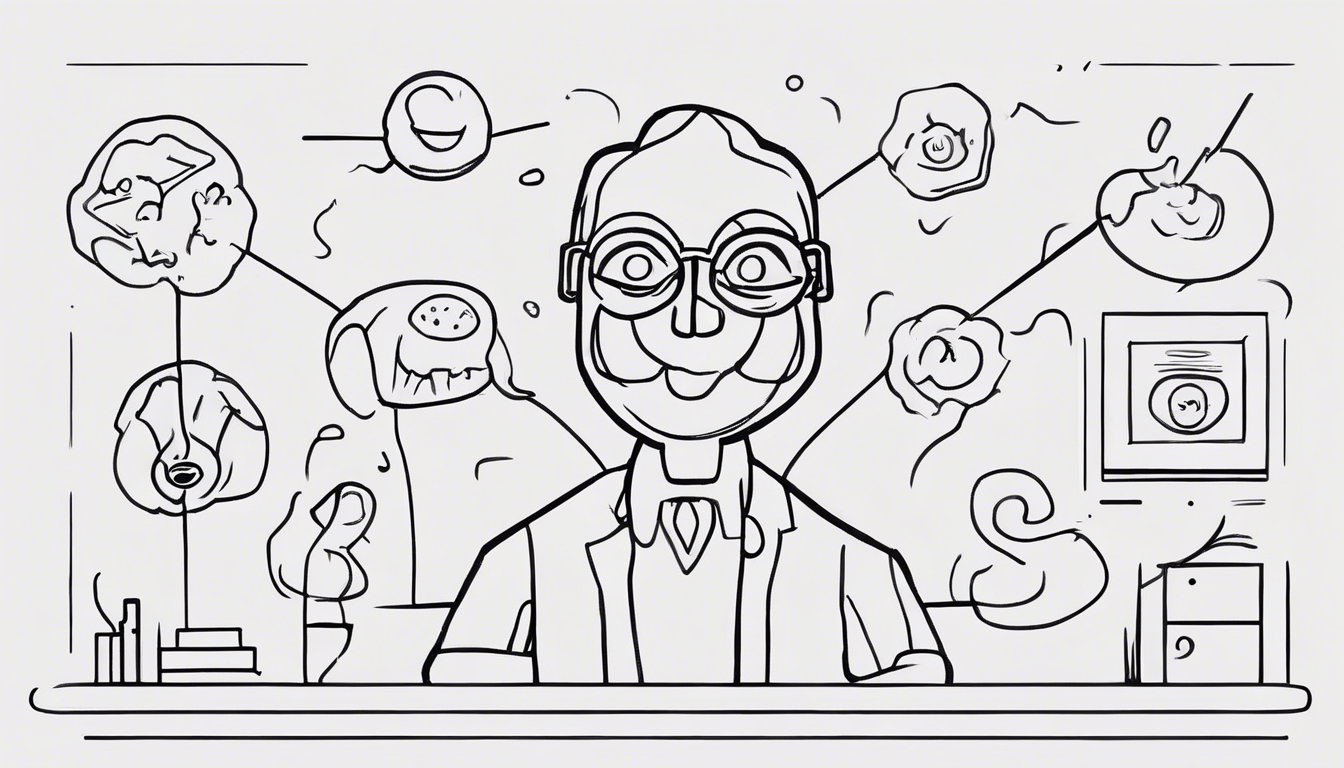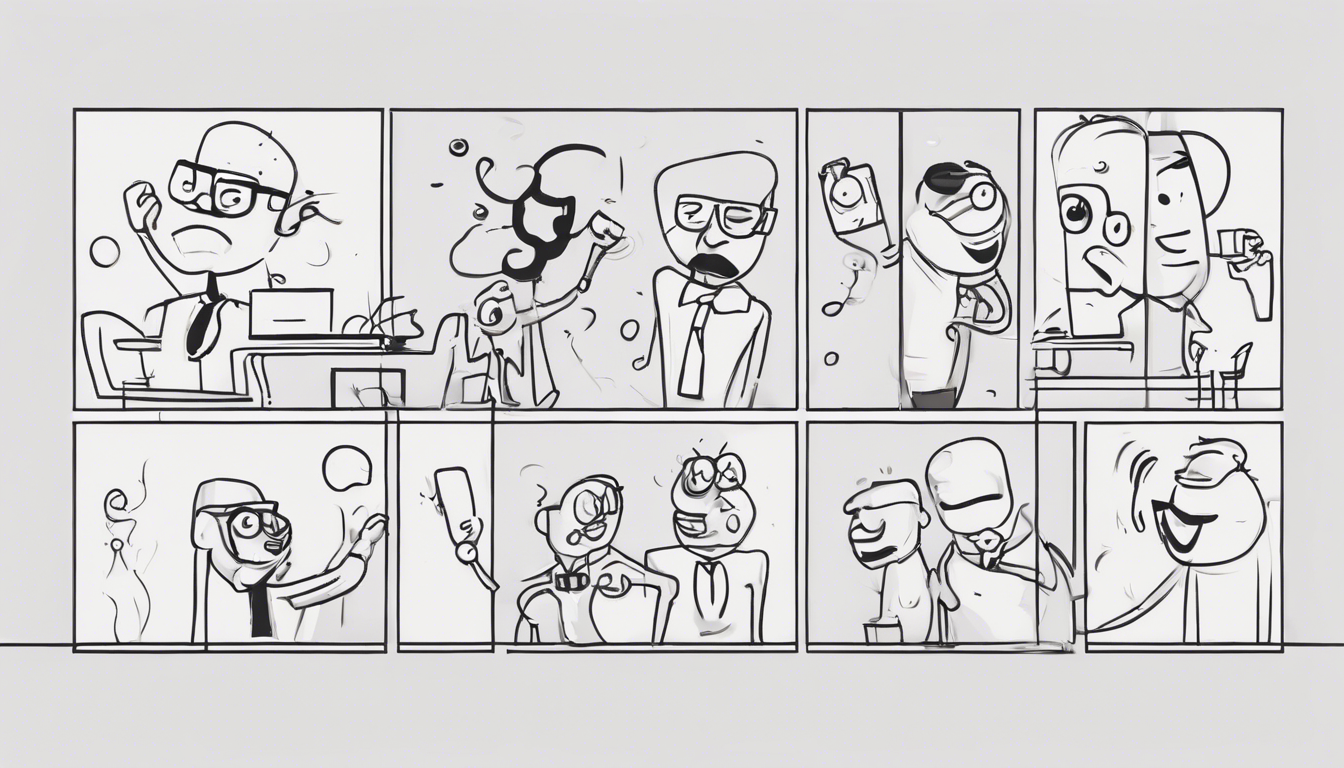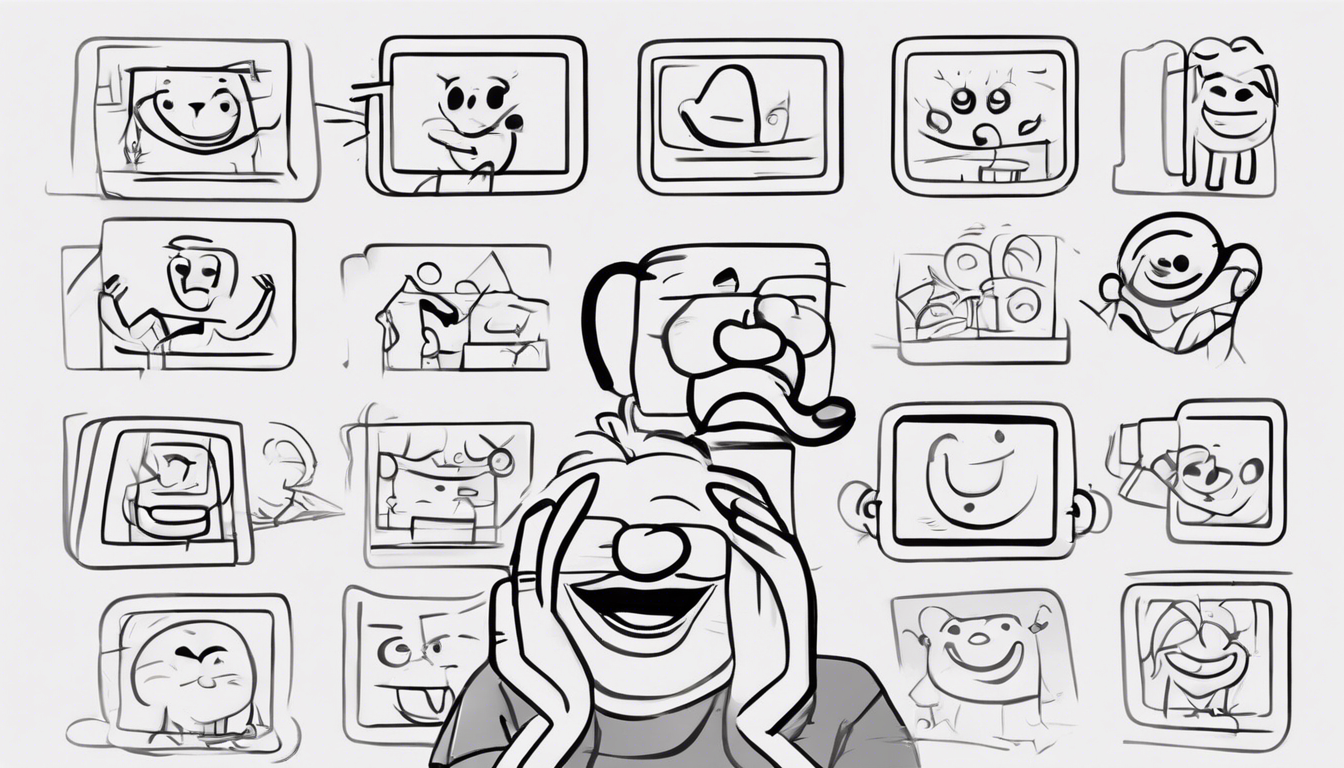Introduction
Humor, the magical ingredient that adds spice to our conversations and brings smiles to our faces. It’s the universal language that transcends barriers and connects people in a unique way. Whether it’s a witty joke, a clever pun, or a hilarious anecdote, humor has the power to lighten the mood and make communication more engaging. In this article, we will explore the art of using humor effectively in various aspects of life and delve into its psychological and social impacts.
Defined as the quality of being amusing or entertaining, humor is a versatile tool that can be used to entertain, educate, and persuade. It serves as a bridge between individuals, breaking down walls of formality and fostering a sense of camaraderie. Understanding the essence of humor and its significance in human interaction is crucial for anyone looking to enhance their communication skills and build stronger relationships.
The ability to wield humor effectively can be a game-changer in personal and professional settings. By mastering the art of humor, one can navigate social situations with ease, diffuse tension, and leave a lasting impression on others. This essay aims to provide insights into the psychology of humor, different types of humor, benefits and challenges of using humor, as well as strategies for incorporating humor into various aspects of life.
The Psychology of Humor

Have you ever wondered why we burst into laughter at a well-timed joke or a funny situation? Laughter, the physical manifestation of humor, is a complex psychological response that involves a combination of cognitive, emotional, and social factors. From relieving stress to promoting social bonding, laughter plays a vital role in human interaction and well-being.
Beyond its immediate effects, humor offers cognitive benefits by stimulating creativity, problem-solving skills, and critical thinking. When we engage with humor, our brains light up with activity, making connections between seemingly unrelated ideas and fostering a more flexible mindset. This cognitive agility not only enhances our mental acuity but also boosts our overall resilience in the face of challenges.
On an emotional level, humor acts as a powerful coping mechanism, helping individuals navigate difficult situations with grace and optimism. By reframing perspectives and injecting levity into serious matters, humor can provide a sense of relief and perspective, enabling individuals to approach life’s ups and downs with a lighter heart and a brighter outlook.
Types of Humor

Humor comes in various forms, each with its own unique charm and appeal. Situational humor, arising from unexpected or absurd circumstances, tickles our funny bone by highlighting the quirks of everyday life. Whether it’s a comedic mishap or a humorous misunderstanding, situational humor invites us to find joy in the mundane and embrace the unexpected twists of fate.
Satire and sarcasm, on the other hand, use irony and wit to critique societal norms, behaviors, or individuals. By cleverly exaggerating flaws or absurdities, satire prompts reflection and challenges conventional thinking. Sarcasm, with its sharp and often biting humor, serves as a tool for social commentary and humorously pointing out inconsistencies or hypocrisy.
Wordplay and puns add a linguistic twist to humor, playing with the sounds and meanings of words to create clever and often groan-inducing jokes. Whether it’s a punny punchline or a witty wordplay, this type of humor delights in the nuances of language and invites us to appreciate the playful side of communication. Embracing different types of humor allows individuals to diversify their comedic repertoire and tailor their jokes to different audiences and contexts.
Benefits of Using Humor

Humor serves as a powerful tool for building rapport and forging connections with others. By sharing a laugh, individuals create a sense of camaraderie and mutual understanding, fostering a positive and welcoming atmosphere. Whether in personal relationships or professional settings, humor can break down barriers, ease tensions, and strengthen bonds between individuals.
In addition to its social benefits, humor also enhances creativity and problem-solving skills. By encouraging playful thinking and out-of-the-box ideas, humor stimulates innovation and fosters a more dynamic approach to challenges. The ability to find humor in everyday situations can spark creativity, inspire new perspectives, and fuel a culture of innovation in various domains.
Furthermore, humor acts as a natural stress reliever, helping individuals unwind, relax, and recharge amidst the demands of daily life. Laughter triggers the release of endorphins, the body’s feel-good chemicals, promoting a sense of well-being and reducing stress levels. By incorporating humor into their lives, individuals can cultivate a more lighthearted outlook and navigate challenges with resilience and optimism.
Challenges of Using Humor

While humor can be a powerful communication tool, it also comes with its set of challenges and considerations. Cultural differences play a significant role in determining what is considered funny or appropriate in different contexts. What may elicit laughter in one culture could be met with confusion or offense in another, highlighting the importance of cultural sensitivity and awareness when using humor.
Another challenge of using humor lies in the risk of inadvertently offending others. Humor is subjective, and what one person finds amusing, another may find hurtful or disrespectful. Navigating the fine line between playful banter and offensive remarks requires a keen understanding of one’s audience and a thoughtful approach to humor that respects diverse perspectives and sensitivities.
Moreover, the overuse of humor can dilute its impact and effectiveness. Just as a well-timed joke can lighten the mood and enhance communication, an excess of humor can detract from serious discussions or diminish the gravity of important matters. Finding the right balance between humor and seriousness is essential to ensure that humor enhances rather than detracts from the intended message or interaction.
Strategies for Using Humor Effectively

To wield humor effectively, it’s essential to know your audience and tailor your jokes to their preferences and sensibilities. Understanding the cultural background, age group, and interests of your audience can help you craft jokes that resonate and land well, fostering a positive and engaging interaction. By customizing your humor to suit your audience, you can maximize the impact of your comedic efforts.
Timing and context are key components of successful humor. Knowing when to inject humor into a conversation or situation can make all the difference between a well-received joke and a cringe-worthy moment. By gauging the mood, tone, and appropriateness of the situation, you can ensure that your humor enhances the interaction and contributes positively to the overall atmosphere.
Balancing humor with seriousness is crucial for maintaining credibility and impact. While humor can lighten the mood and foster connections, it’s essential to know when to transition to a more serious or focused discussion. By striking a balance between levity and gravity, individuals can navigate conversations with nuance and ensure that their humor complements rather than detracts from the intended message or goal.
Examples of Successful Use of Humor

Comedy in advertising has long been a successful strategy for capturing audience attention and creating memorable brand experiences. By infusing humor into commercials, brands can engage viewers, evoke positive emotions, and leave a lasting impression. Whether through clever wordplay, relatable situations, or humorous characters, comedic advertising campaigns have the power to resonate with consumers and build brand loyalty.
Humor in leadership can be a powerful tool for inspiring and motivating teams. Leaders who incorporate humor into their communication style can foster a positive work environment, boost morale, and encourage creativity and collaboration. By lightening the mood, acknowledging shared experiences, and injecting levity into interactions, humorous leaders can build rapport, trust, and camaraderie within their teams.
In the realm of education, humor has been shown to enhance learning outcomes and student engagement. Teachers who use humor in their lessons create a more dynamic and interactive classroom environment, making learning fun and memorable. By incorporating jokes, anecdotes, and playful activities into their teaching methods, educators can capture students’ attention, stimulate critical thinking, and foster a love for learning.
Impact of Humor on Relationships

Humor plays a pivotal role in shaping relationships and fostering positive interactions between individuals. Shared laughter creates a sense of intimacy and connection, strengthening bonds and building trust. Whether among friends, family members, or colleagues, humor acts as a social glue that binds individuals together and cultivates a sense of camaraderie and mutual understanding.
In times of conflict or tension, humor can serve as a powerful tool for diffusing disagreements and resolving disputes. By injecting humor into difficult conversations, individuals can break the ice, lighten the mood, and encourage open communication. Humor allows individuals to approach sensitive topics with empathy and understanding, paving the way for constructive dialogue and conflict resolution.
Moreover, humor creates memorable experiences that leave a lasting impact on relationships. Shared jokes, funny anecdotes, and humorous moments become cherished memories that strengthen the emotional connection between individuals. By embracing humor in relationships, individuals can create a positive and uplifting environment where laughter reigns supreme, fostering joy, resilience, and a sense of togetherness.
Ethical Considerations in Using Humor

When using humor, it’s essential to navigate ethical considerations to ensure that jokes are inclusive, respectful, and free from stereotypes or discrimination. Humor should never come at the expense of marginalized groups or perpetuate harmful stereotypes. By promoting diversity, equity, and inclusivity in humor, individuals can create a welcoming and safe environment where everyone feels valued and respected.
Respecting boundaries and sensitivities is paramount when incorporating humor into interactions. Understanding the limits of humor and being mindful of individual preferences and comfort levels can prevent unintended offense or discomfort. By fostering a culture of respect and empathy, individuals can use humor as a tool for connection and positivity, rather than a source of division or harm.
Promoting inclusivity in humor involves celebrating diversity, embracing different perspectives, and refraining from jokes that alienate or exclude others. By cultivating an environment where everyone feels seen, heard, and valued, individuals can harness the unifying power of humor to bridge divides, foster understanding, and create a sense of belonging for all. Ethical humor is not just about being funny; it’s about being kind, considerate, and mindful of the impact of our words and actions on others.
Conclusion
In conclusion, the art of using humor effectively is a valuable skill that can enrich communication, strengthen relationships, and bring joy to everyday interactions. By understanding the psychology of humor, exploring different types of humor, and embracing the benefits and challenges of humor, individuals can harness the power of laughter to connect with others and navigate life’s ups and downs with grace and resilience.
Humor is not just a source of entertainment; it’s a powerful tool for fostering creativity, reducing stress, and promoting positive social interactions. Whether in advertising, leadership, education, or personal relationships, humor has the ability to captivate audiences, inspire teams, engage students, and create lasting memories that bind individuals together in laughter and camaraderie.
As we reflect on the importance of humor in communication, let us remember to approach humor with sensitivity, respect, and inclusivity. By embracing ethical considerations and cultivating a culture of kindness and understanding, we can use humor as a force for good, bringing people together, spreading joy, and creating a more lighthearted and connected world. So, let’s sprinkle some laughter into our lives and brighten the days of those around us!





